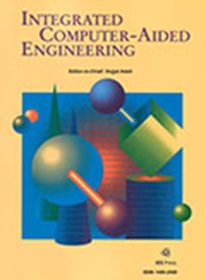An improved deep learning architecture for multi-object tracking systems
IF 5.3
2区 计算机科学
Q1 COMPUTER SCIENCE, ARTIFICIAL INTELLIGENCE
引用次数: 1
Abstract
Robust and reliable 3D multi-object tracking (MOT) is essential for autonomous driving in crowded urban road scenes. In those scenarios, accurate data association between tracked objects and incoming new detections is crucial. This paper presents a tracking system based on the Kalman filter that uses a deep learning approach to the association problem. The proposed architecture consists of three neural networks. First, a convolutional LSTM network extracts spatiotemporal features from a sequence of detections of the same track. Then, a Siamese network calculates the degree of similarity between all tracks and the new detections found at each new frame. Finally, a recurrent LSTM network is used to extract 3D and bounding box information. This model follows the tracking-by-detection paradigm and has been trained with track sequences to be able to handle missed observations and to reduce identity switches. A validation test was carried out on the Argoverse dataset to validate the performance of the proposed system. The developed deep learning approach could improve current multi-object tracking systems based on classic algorithms like the Kalman filter.一种用于多目标跟踪系统的改进深度学习架构
鲁棒可靠的三维多目标跟踪(MOT)是实现拥挤城市道路场景下自动驾驶的关键。在这些情况下,跟踪对象和新探测之间的准确数据关联至关重要。本文提出了一种基于卡尔曼滤波的跟踪系统,该系统使用深度学习方法来解决关联问题。所提出的结构由三个神经网络组成。首先,卷积LSTM网络从同一轨迹的一系列检测中提取时空特征。然后,Siamese网络计算所有轨迹与在每个新帧中发现的新检测之间的相似度。最后,利用循环LSTM网络提取三维和边界框信息。该模型遵循检测跟踪范式,并经过跟踪序列的训练,能够处理错过的观察并减少身份转换。在Argoverse数据集上进行了验证测试,以验证所提出系统的性能。所开发的深度学习方法可以改进当前基于卡尔曼滤波等经典算法的多目标跟踪系统。
本文章由计算机程序翻译,如有差异,请以英文原文为准。
求助全文
约1分钟内获得全文
求助全文
来源期刊

Integrated Computer-Aided Engineering
工程技术-工程:综合
CiteScore
9.90
自引率
21.50%
发文量
21
审稿时长
>12 weeks
期刊介绍:
Integrated Computer-Aided Engineering (ICAE) was founded in 1993. "Based on the premise that interdisciplinary thinking and synergistic collaboration of disciplines can solve complex problems, open new frontiers, and lead to true innovations and breakthroughs, the cornerstone of industrial competitiveness and advancement of the society" as noted in the inaugural issue of the journal.
The focus of ICAE is the integration of leading edge and emerging computer and information technologies for innovative solution of engineering problems. The journal fosters interdisciplinary research and presents a unique forum for innovative computer-aided engineering. It also publishes novel industrial applications of CAE, thus helping to bring new computational paradigms from research labs and classrooms to reality. Areas covered by the journal include (but are not limited to) artificial intelligence, advanced signal processing, biologically inspired computing, cognitive modeling, concurrent engineering, database management, distributed computing, evolutionary computing, fuzzy logic, genetic algorithms, geometric modeling, intelligent and adaptive systems, internet-based technologies, knowledge discovery and engineering, machine learning, mechatronics, mobile computing, multimedia technologies, networking, neural network computing, object-oriented systems, optimization and search, parallel processing, robotics virtual reality, and visualization techniques.
 求助内容:
求助内容: 应助结果提醒方式:
应助结果提醒方式:


